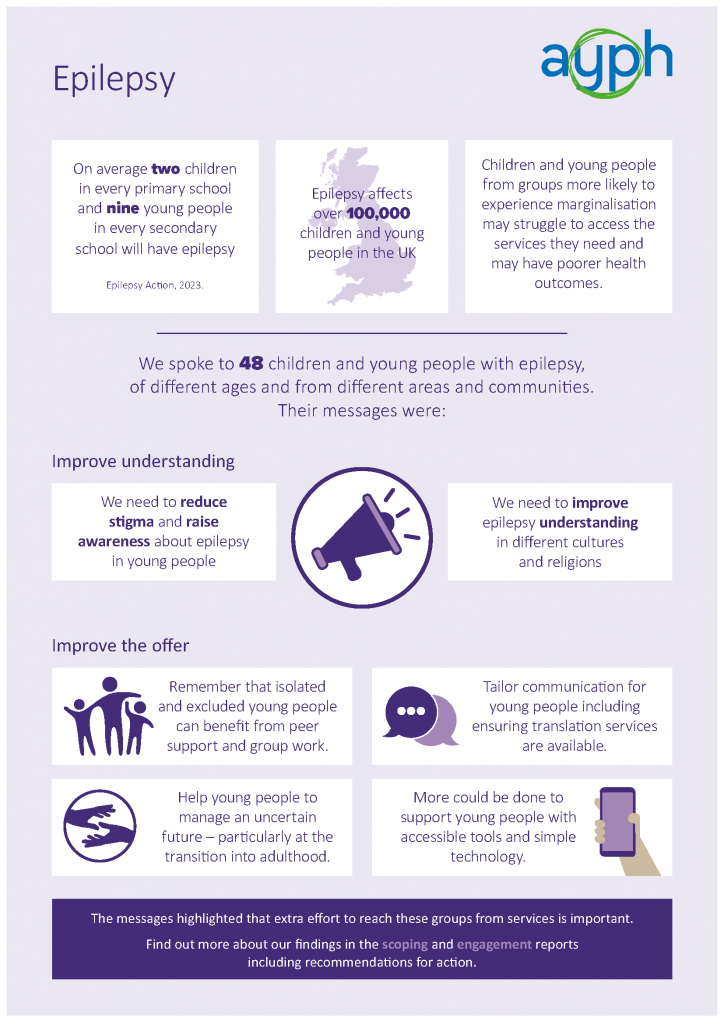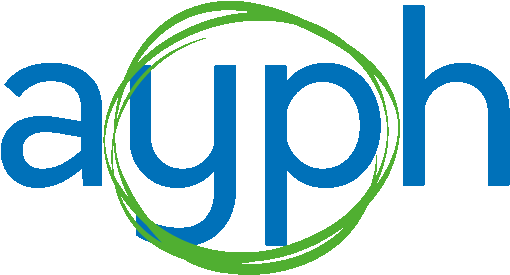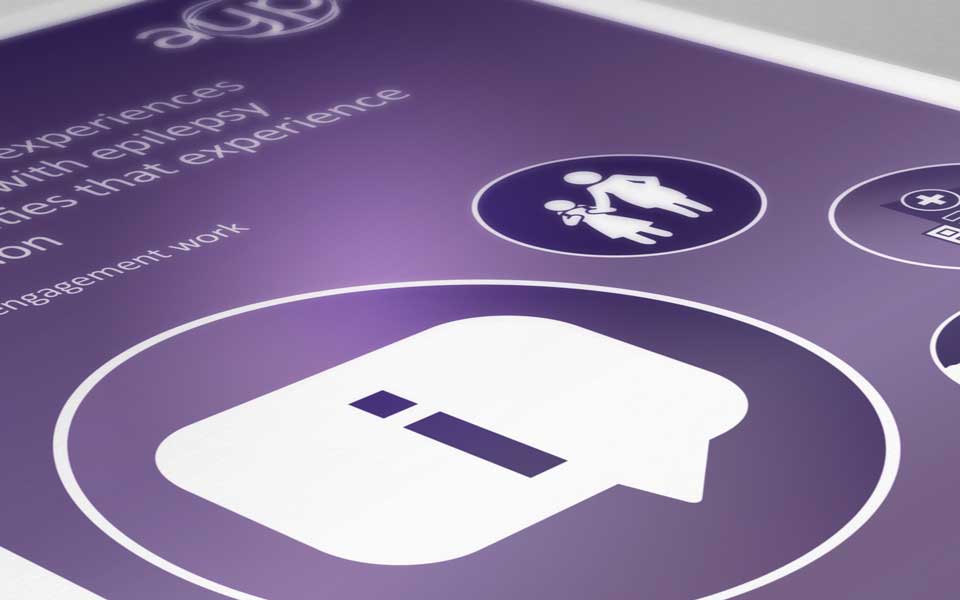Epilepsy is one of the most common significant long-term neurological conditions of childhood and one of the five clinical areas of focus in the NHS England ‘Core20PLUS5’ approach to reducing health inequalities for children and young people. Yet findings from our scoping review of relevant literature highlighted that there is little published evidence from youth engagement projects on the voice of children and young people diagnosed with epilepsy, especially from communities that are more likely to experience marginalisation.
Working closely with our partners the Race Equality Foundation, RCPCH &Us and Young Epilepsy we spoke to children and young people with epilepsy from Black and minority ethnic communities, those living in deprived areas, and those with a co-occurring neuro diverse condition and/or a learning disability.
 Our infographic highlights the themes from the participation sessions which included the importance of tailored and direct communication with young people as well as access to translation services. Sessions with young people with learning disabilities and neuro diverse conditions highlighted that young people often felt invisible and wanted the opportunity to communicate their own needs.
Our infographic highlights the themes from the participation sessions which included the importance of tailored and direct communication with young people as well as access to translation services. Sessions with young people with learning disabilities and neuro diverse conditions highlighted that young people often felt invisible and wanted the opportunity to communicate their own needs.
Recommendations arising from young people include the need to:
- improve the range of information about epilepsy for different ages, young people from different communities and with different needs;
- increase opportunities for young people with epilepsy to work with their peers and help co-produce solutions
- introduce stigma busting and awareness training in communities and schools and
- increase the availability of accessible and simple technology.
Find out more in our engagement report, scoping review and infographic summarising the findings.

